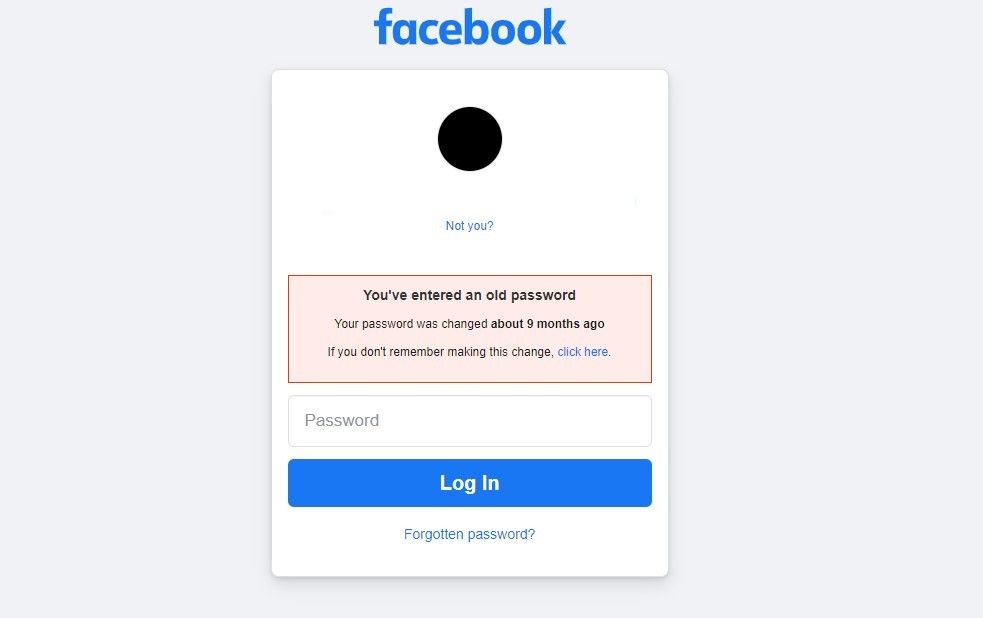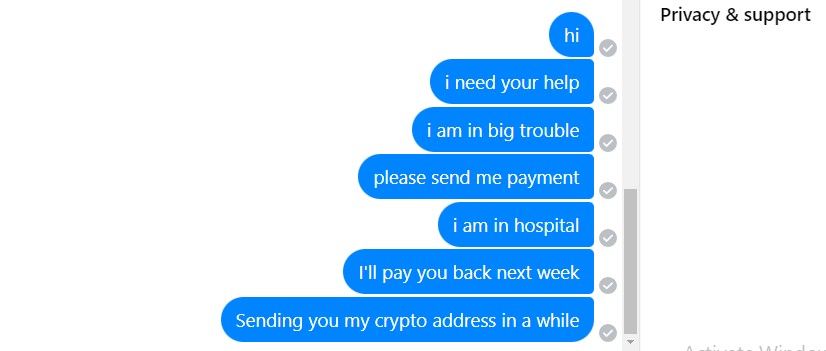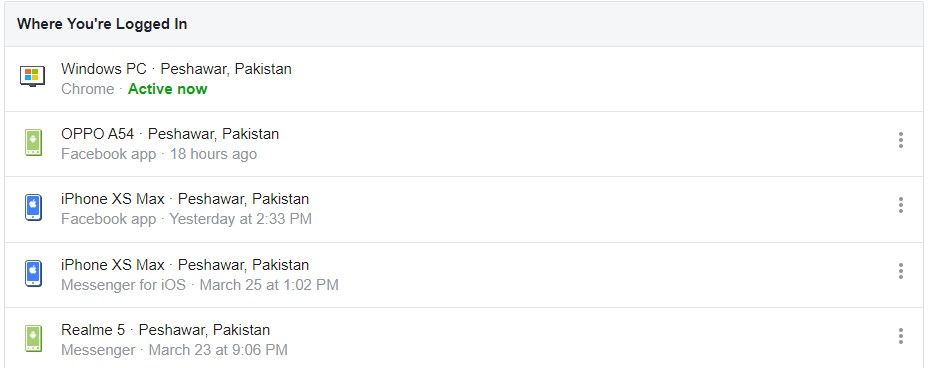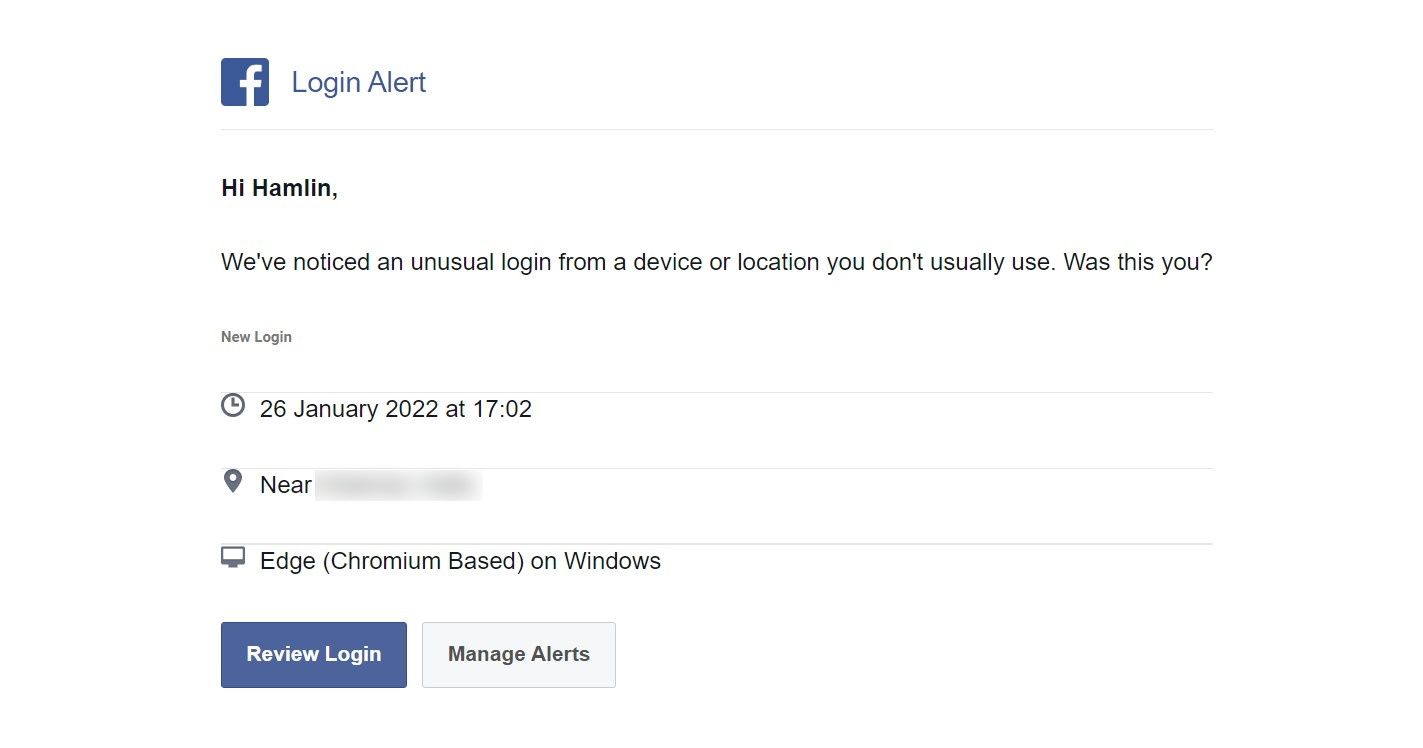Network Watchfulness: The 9 Steps to Recognizing a Compromised Profile

Network Watchfulness: The 9 Steps to Recognizing a Compromised Profile
Keeping our data safe online is one of the hardest things in this digital age. No matter how secure social media platforms are and how carefully you follow the guidelines, people still fall for scams and get their accounts hacked.
Therefore, it is imperative to know the signs that indicate that one of your social media accounts has been hacked to take the necessary measures in time. In this article, we will discuss some of these signs.
1. Your Password Has Been Changed

The first possible sign that your social media account has been hacked is when you cannot log in to your account with your password. If you see the social media platform confirming that your password has changed recently, but it’s not you who changed it, that’s a clear sign that someone else has accessed your account and changed your password.
However, there is a possibility that hackers may access your account and do whatever they want without changing your password to avoid suspicion. In that case, this sign won’t help, so you’ll need to look at the other symptoms listed below.
2. Random Posts From Your Profile
If hackers want to promote any of their offers or share links with a large audience, they should do this on a timeline for everyone to see.
Whether your friends tell you about unusual posts from your profile or you track them yourself, it’s a sign that your account might have been hacked recently.
You are at a greater risk of being hacked if you are an admin of popular pages or your account is highly popular.
3. Your Contacts Reporting Unusual Messages

In the same way that hackers manipulate your timeline to spread their message throughout your audience, they can also use your private messages to do the same. So, check if there have been unusual sharing of links that you did not share or messages that you did not send across your network.
If you notice such activity, that’s another clear indication that someone has accessed your account without your knowledge. Furthermore, a hacker might have deleted messages your friends complained about receiving from your end if you couldn’t locate them. So, do take precautions in such a situation as well.
4. Logins From Remote Locations

The majority of social media platforms keep track of your login history. So, in case a hacker gains access to your account, you’ll see your account being accessed from a place you’ve never physically been to before.
Some social media platforms also track the device and the exact time of logins. Therefore, if you see someone accessing your account while you were sleeping from a device you never owned, that’s another indicator of a possible breach.
Using this sign to confirm the risk of your account being hacked can be difficult if you frequently use a VPN when accessing social media platforms . In that case, you should look at the other signs on the list.
5. Unusual Increase in Number of Friends or Followers
When you see hundreds of new friends added to your friend list overnight, unusual increases in the number of people you follow, or pending requests sent from your side, it’s an obvious indication that an infiltration has occurred.
The same applies to activity and interactions across groups and pages you own or are a part of on Facebook, LinkedIn, and other platforms.
Hackers often take advantage of this opportunity to spread malicious links and content by adding other people to your network or using your authority to accomplish what they need.
6. Suspicious Activity on Your Business Page or Group
If you own an established page or group, check if any suspicious activity has occurred through it. If you see someone following random accounts through your page, running promotions you haven’t conducted, or trying to sell something you haven’t listed, that could also be a sign that your account has been compromised.
Moreover, changes in the admin permissions of pages or groups linked to your account that other admins or moderators haven’t amended are also a warning sign you should watch out for. This is just one of the many ways hackers use to steal your identity on social media .
7. Receiving Emails Notifying About Unauthorized Access

If you have activated the extra security layer to receive alerts about unauthorized logins, most social media networks like Facebook, Twitter, etc., will notify you if an unauthorized device attempts to access your account.
When you receive emails from such networks asking you to confirm whether you’ve attempted to log into a particular device at this time, and you haven’t, then that’s another sign that your account has been hacked.
Moreover, if you receive an email asking you to change your password or verify your OTP, it’s good to check your account login history to see if someone has worked their way around and logged into your account.
8. Signed Up for Subscriptions and Unusual Purchases
You should be cautious if you see some unusual subscription purchases, such as signing up for LinkedIn premium, without your knowledge. You should also check for apps or websites you signed up for using your account but don’t remember doing so.
Additionally, if you see someone selling or buying items in groups or marketplaces, sending super chats, or contacting influencers for promotion, someone else could be using your account.
9. Suspicious Activity in Your Ad Manager
Hackers may also try to access your profile to take advantage of your ad manager. You may see campaigns running for promoting pages or selling products, with random credit cards added as payment methods, which confirms that hackers have accessed your account.
Any suspicious activity in your ad manager or a half-setup campaign that you don’t remember setting up may indicate preying eyes have accessed your social media account.
Other Signs to Look For
If your account has been exposed in a breach, you may see unusual changes in the privacy settings you haven’t customized. For instance, people appearing in the blocked list you haven’t added and unusual promotional stories posted from your account or page.
In addition, you should keep an eye out for random achievements posted from your profile, check-ins at unexpected events and places, or any other similar changes in your profile.
Why Social Media Accounts Get Hacked and How to Avoid It
The following are possible reasons why your social media account might be hacked:
- Signing up for insecure websites and apps with your social media accounts.
- Using weak password managers and saving your login credentials in browsers.
- Connecting to public Wi-Fi and using social media accounts.
- Using the same login credentials across multiple platforms.
- Clicking on suspicious links in your inbox.
- Logging into your social media accounts with a shared computer.
Avoid doing everything listed above to keep your account safe. Furthermore, make sure you use a unique and strong password,enable two-factor authentication , and correctly set up your security questions to protect your social media accounts.
Besides all that, know the basic dos and don’ts while browsing the internet to ensure your online safety.
Know the Signs and Protect Your Social Media Accounts
Hopefully, you now know to spot all signs of hacked social media accounts. Keep an eye out for these signs and when you notice them, take the necessary steps to protect your accounts.
Also, you should be aware of trendy social media scams so that you don’t fall for them when they come knocking at your door.
- Title: Network Watchfulness: The 9 Steps to Recognizing a Compromised Profile
- Author: Michael
- Created at : 2024-07-12 10:01:45
- Updated at : 2024-07-13 10:01:45
- Link: https://facebook.techidaily.com/network-watchfulness-the-9-steps-to-recognizing-a-compromised-profile/
- License: This work is licensed under CC BY-NC-SA 4.0.